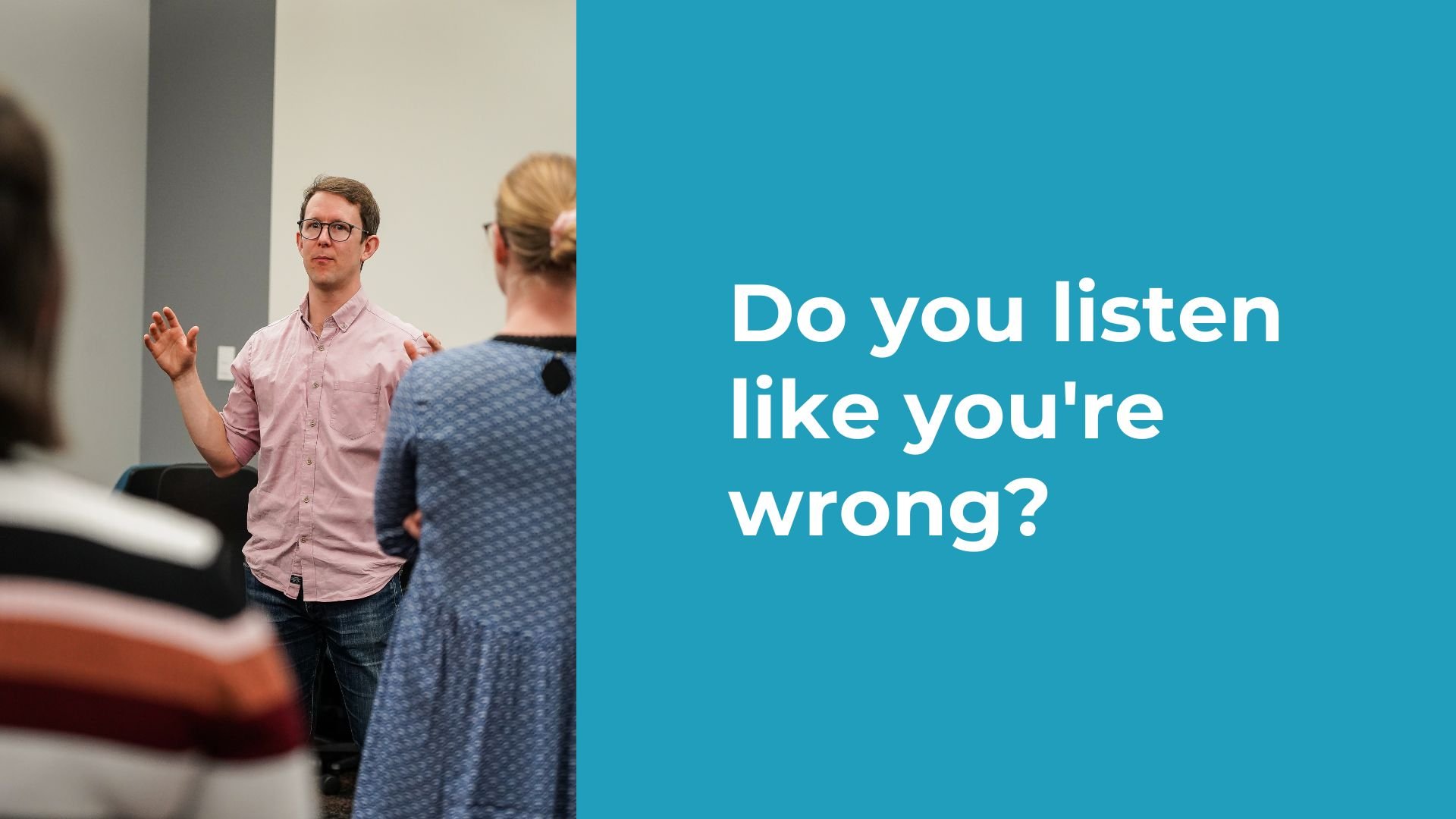
Lead with less stress, and more impact
Find out why 1,000+ leaders look forward to my Thursday morning newsletter
Thank you for subscribing! Your welcome email should be in your inbox before you know it.
Read the latest
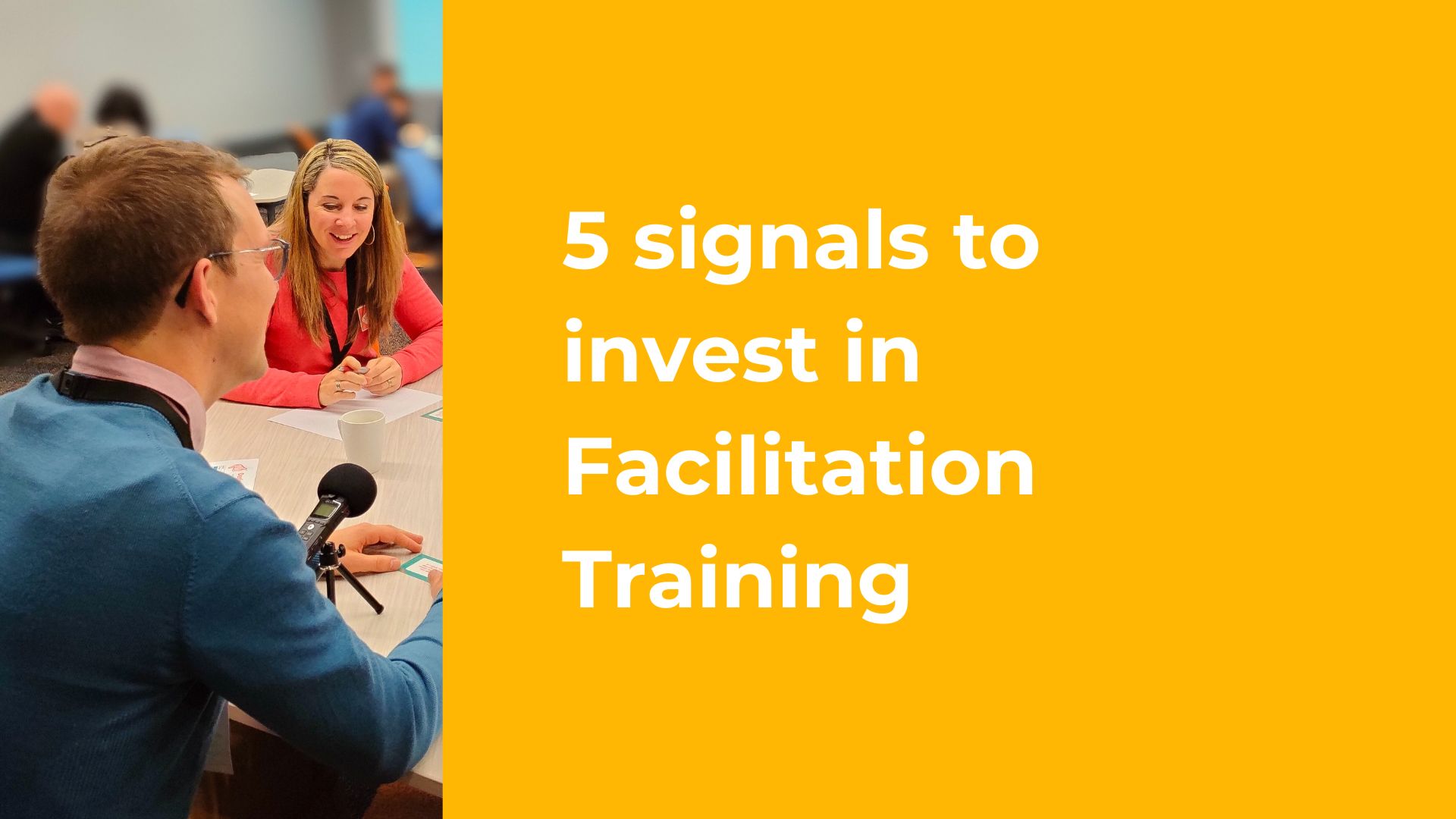
5 signals to invest in facilitation training
In a constrained economic climate, investing in your people development may seem like a luxury you cannot afford. But in truth, it's a necessity you cannot afford to ignore. In this article, I point to five things that might suggest your team needs to upskill in facilitation.
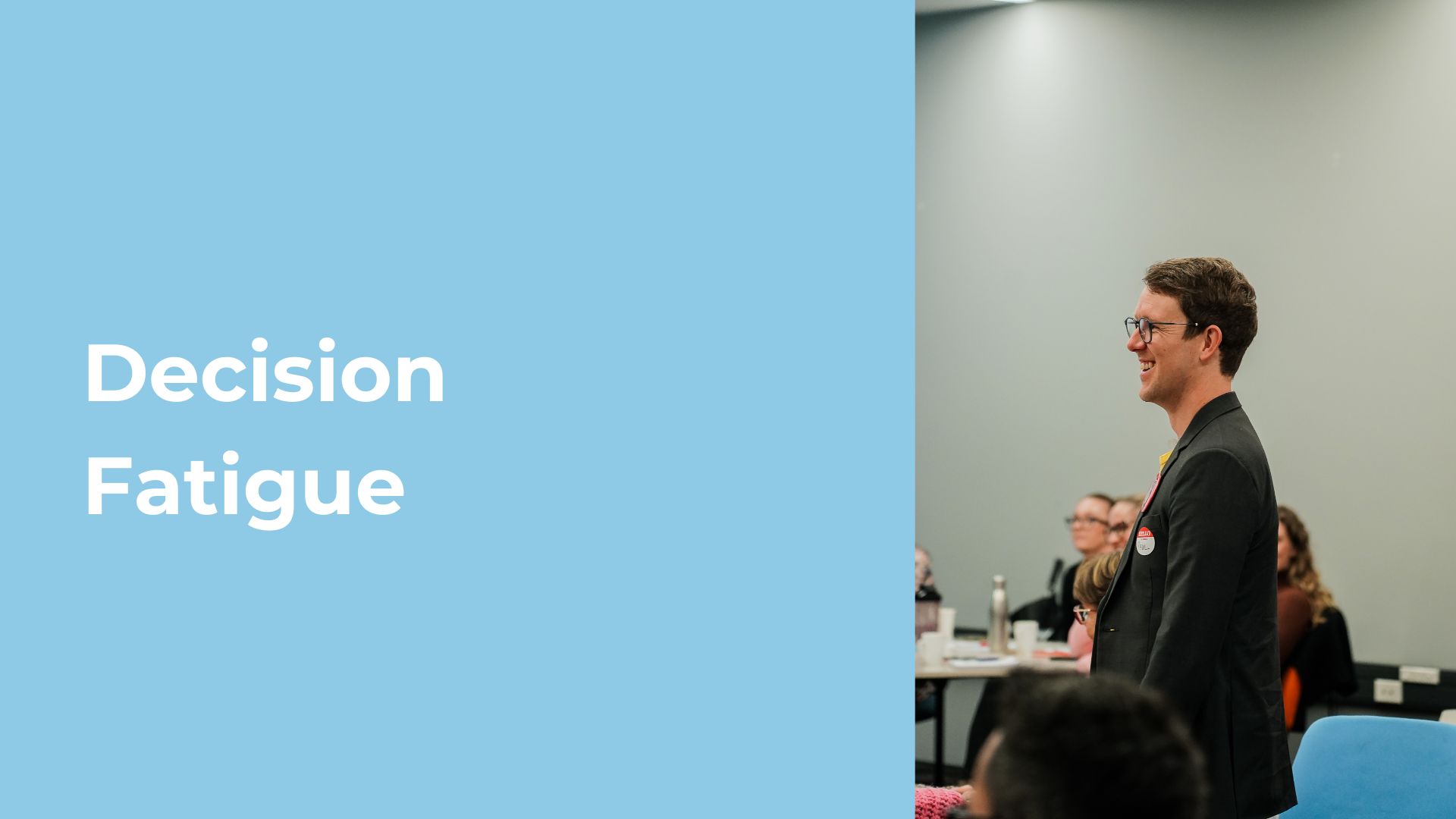
Decision Fatigue
Decisions are tiring. And we make dozens of them every day. But a good decision made is better than a perfect decision delayed.
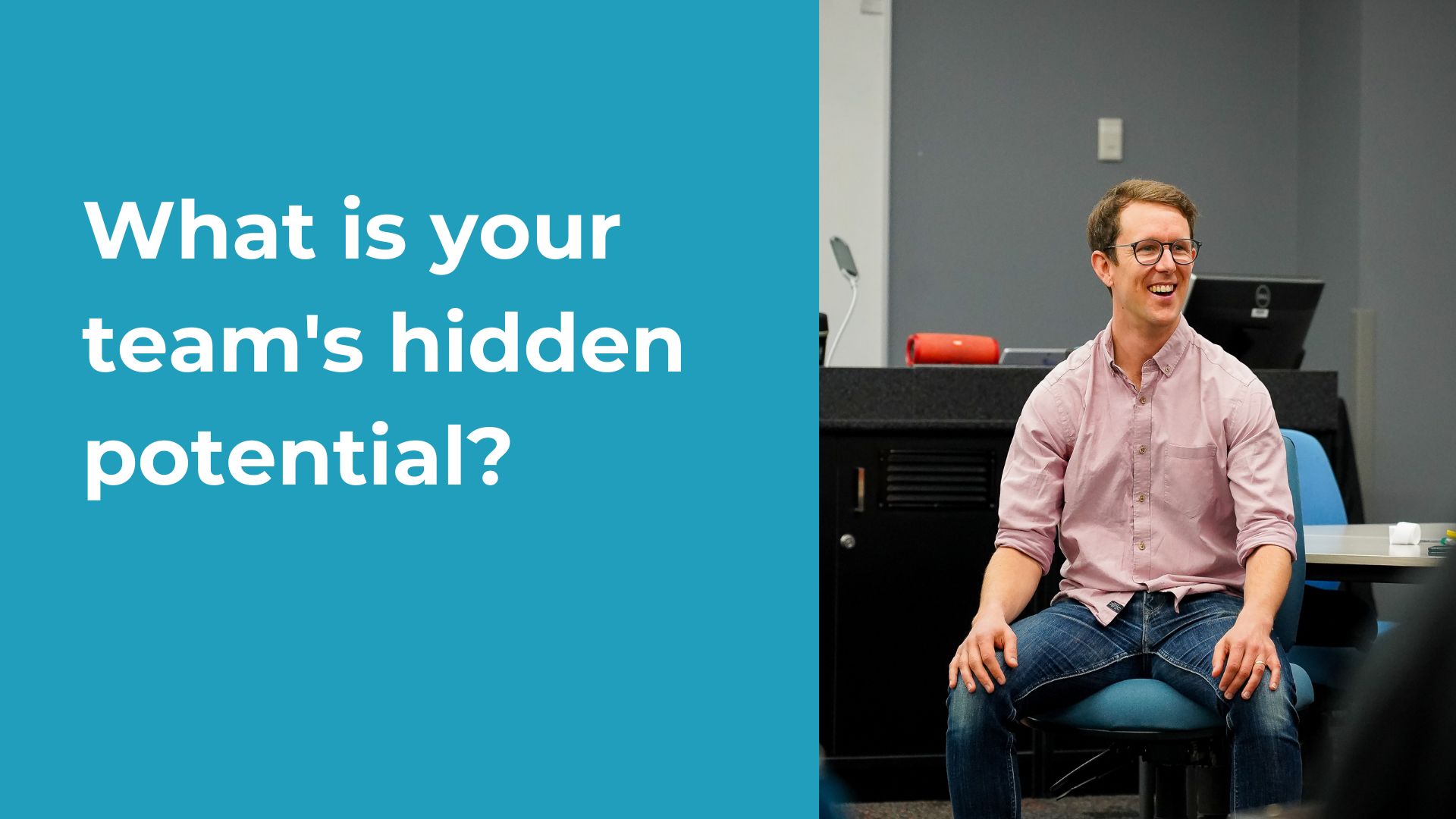
What is your team's hidden potential?
Getting the most out of your people is a critical challenge for all people leaders. But how do we do this? Especially when we have people in our team who seem lazy or unmotivated?
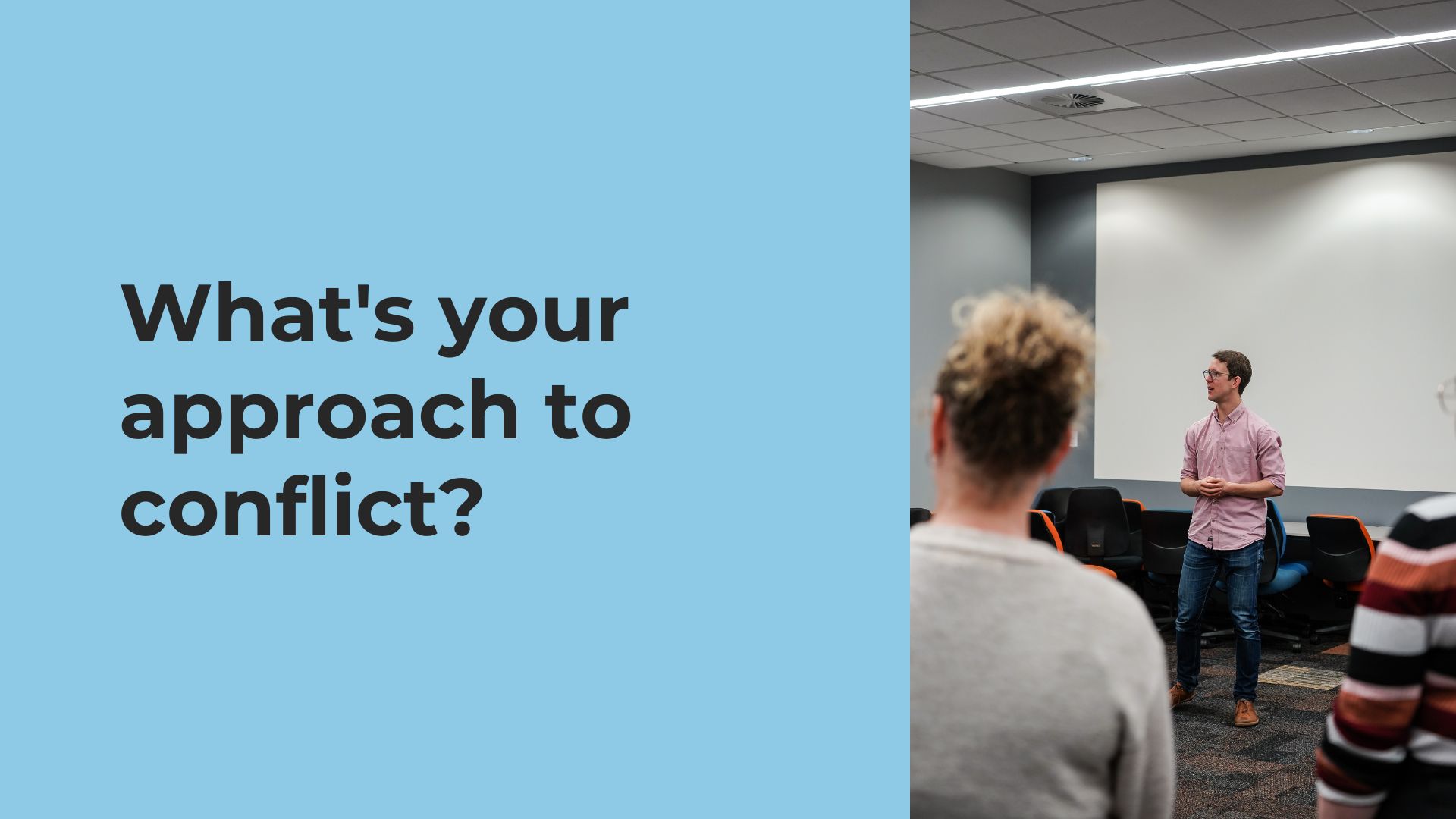
What's your approach to conflict?
Diamonds are formed under pressure. In teams, we need productive conflict. But it's natural to avoid and minimise conflict. If that sounds like your tendency, read on.
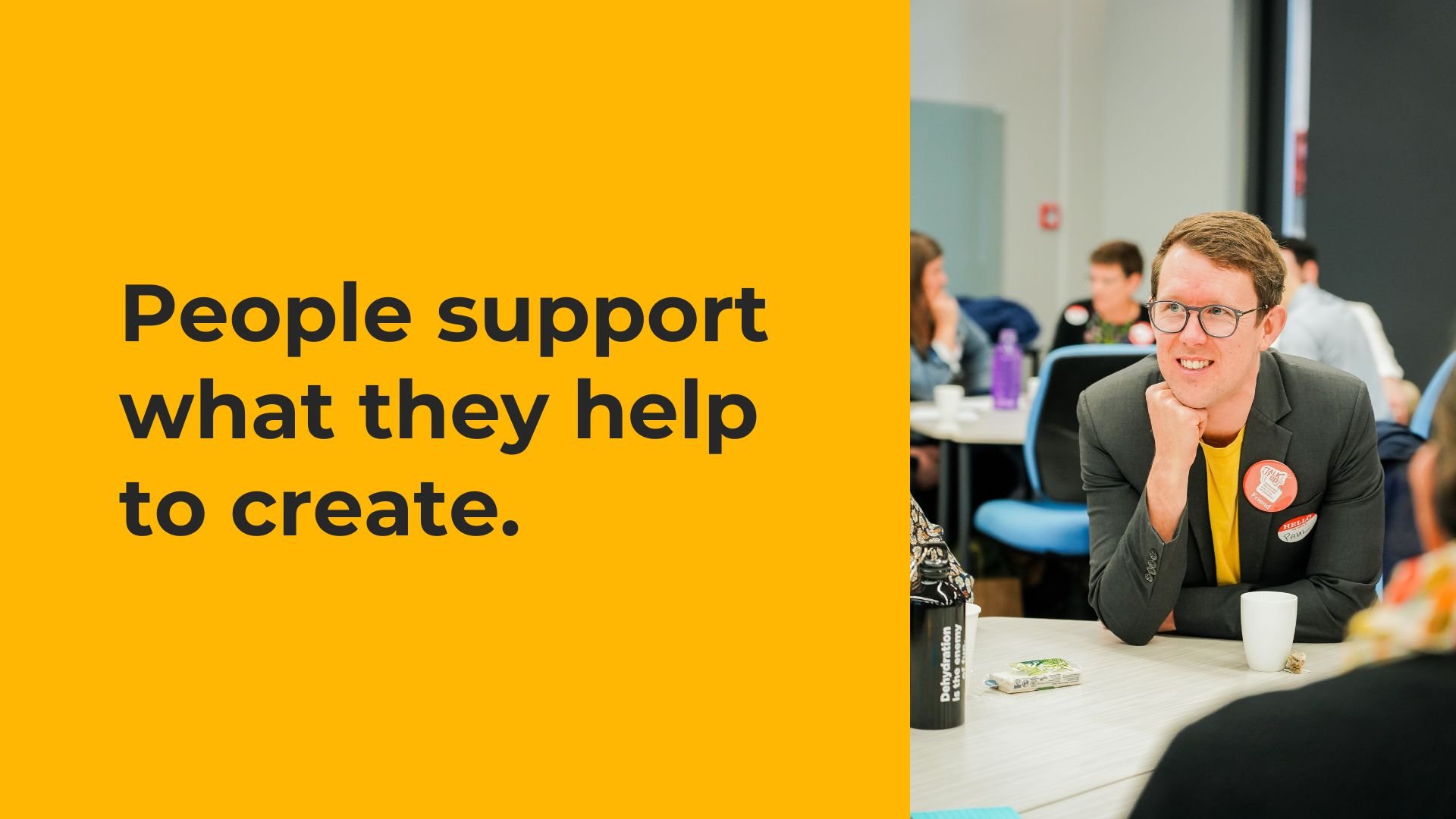
💪People support what they help to create
Engaging people in the process of change means they are more likely to support what you create or decide. But it's hard to let go of power. Why should we co-create and co-design? Why bother?
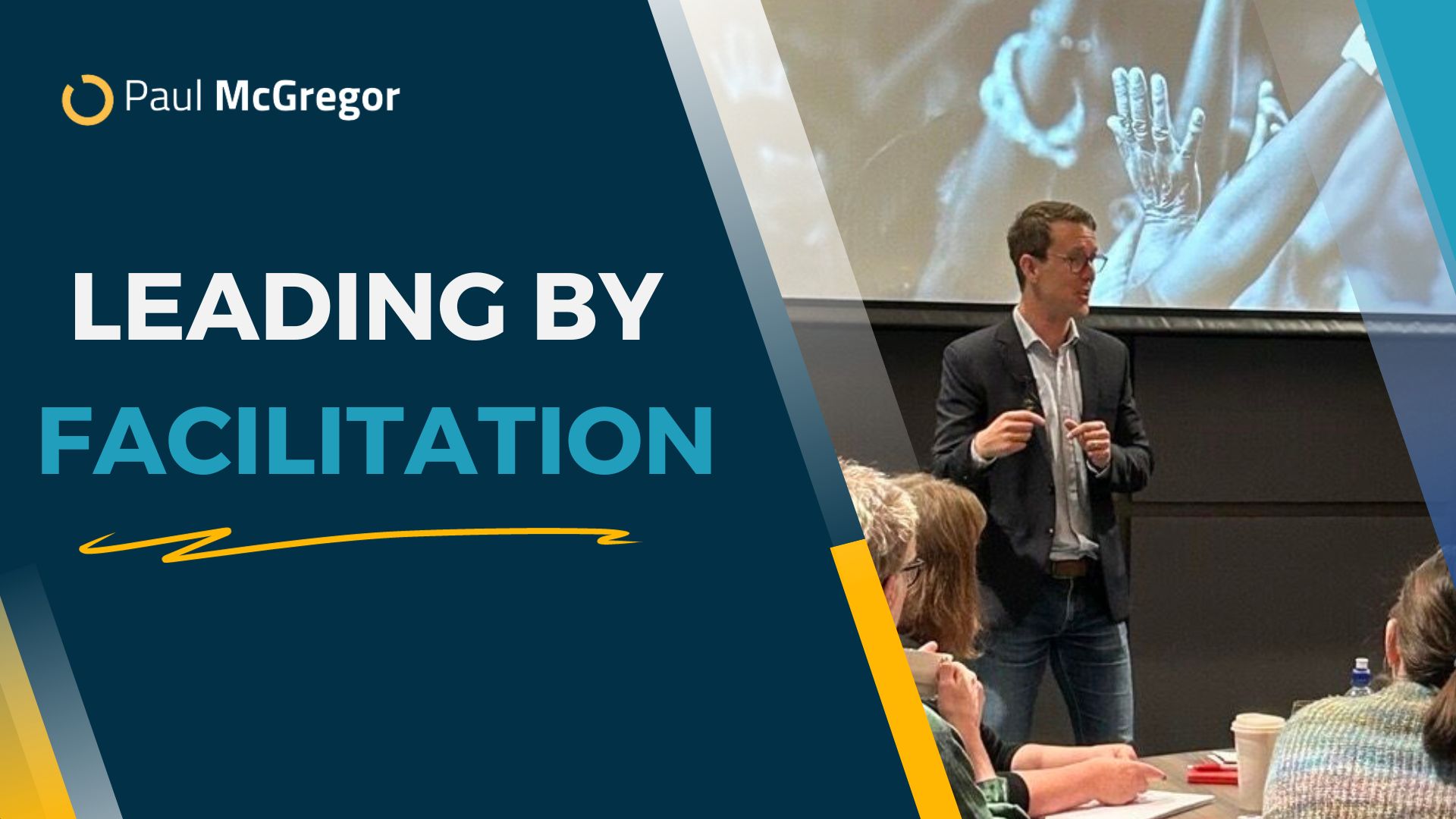
Directing, inviting, sensing or organising?
Personality and team profiling gives us a way to understand how to work better together. But there are dark sides to profiling. Learn how to avoid these and try out the Leading by Facilitation diagnostic for yoursef.

How do your nerves impact the group? 😥
Good facilitation just flows. But sadly, working in groups can be hard graft a lot of the time. What's your experience of leading by facilitation? Torture? Tone-deaf? Tense? Or is it your happy place where you feel like everything just flows?

🙊Words create worlds
Being careful with our words is not politically correct nonsense. Words are powerful. To address the root causes of an issue, we also need to address our beliefs (and how those beliefs show up through our words). After all, words create worlds.

Read this if you're not feeling up for work today
Often we keep ideas and plans close to our chest because we're worried about people reacting negatively to something that's half-baked. But the thing is: people support what they help to create.
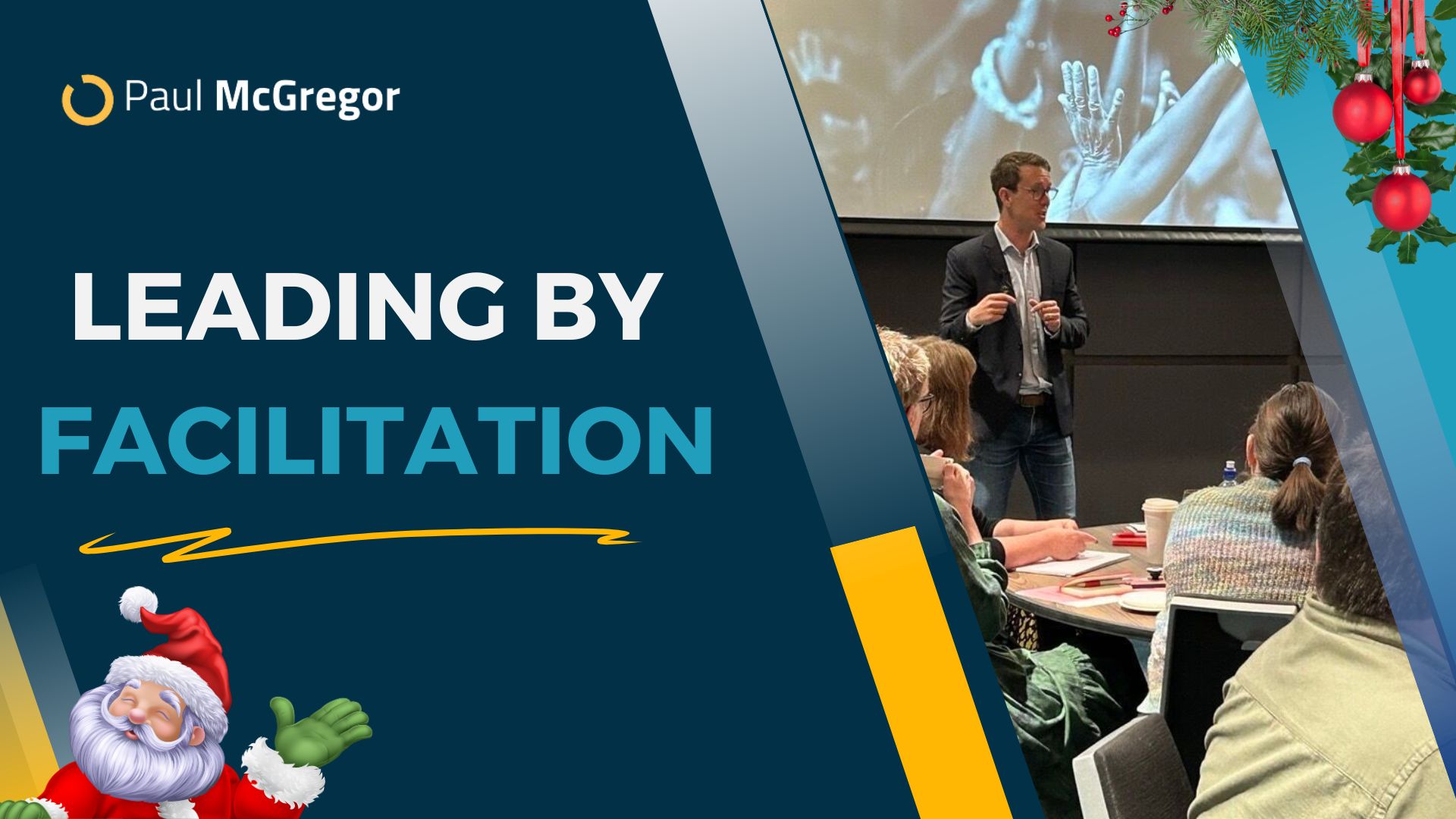
Why do we get sick when the holidays hit?
Do you ever get sick when the holidays hit? It seems unfair, but it's just our body's response to the stress comedown. The good news is we can reduce the chances of it happening.
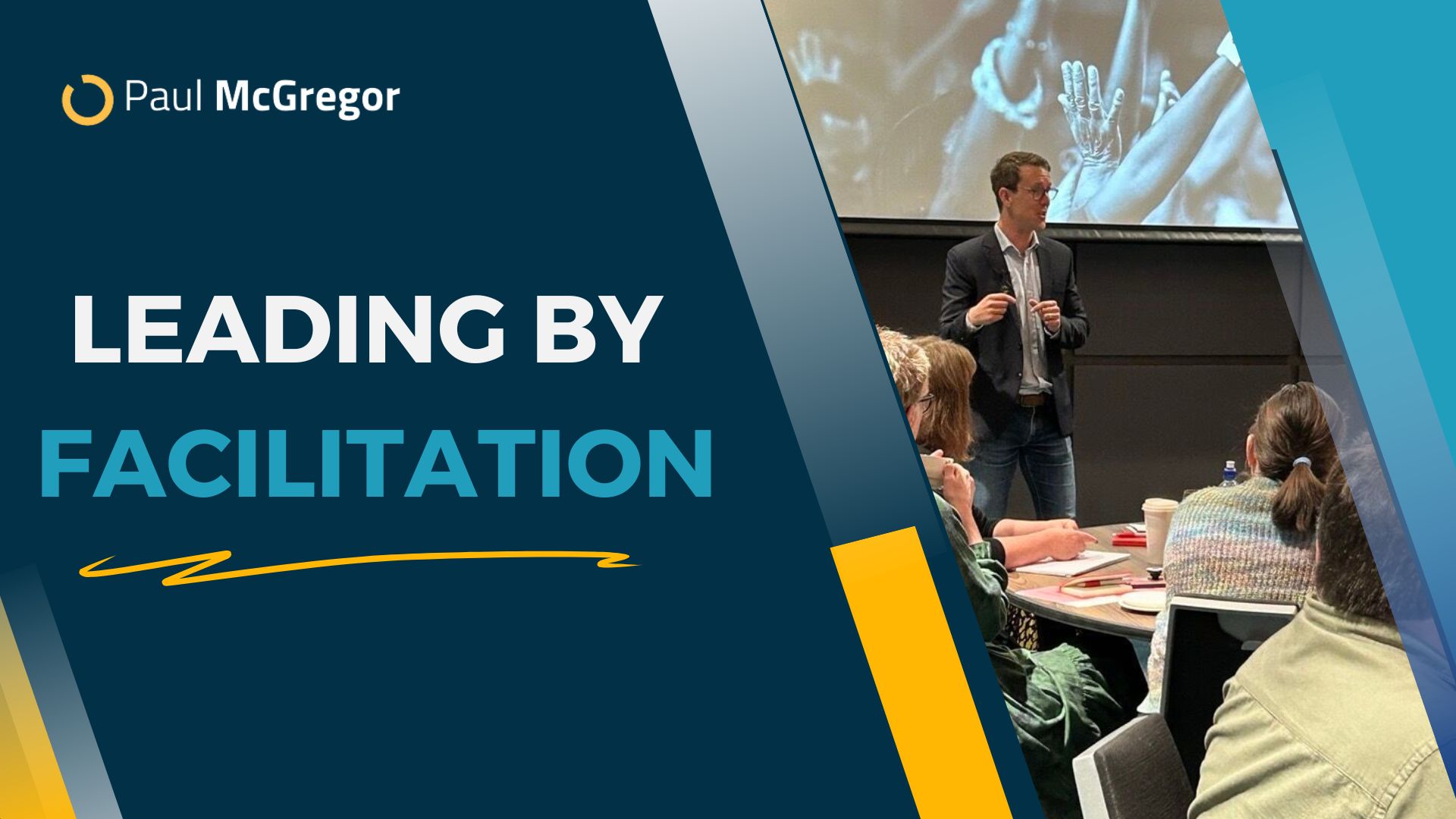
Experiments or goals? (And a book update)
Goals are a helpful tool for predictable tasks. (Like writing a book, for instance.) But they're inappropriate for unpredictable work. Instead of creating goals (which put achievement at the centre), consider setting experiments (which put learning at the centre).
